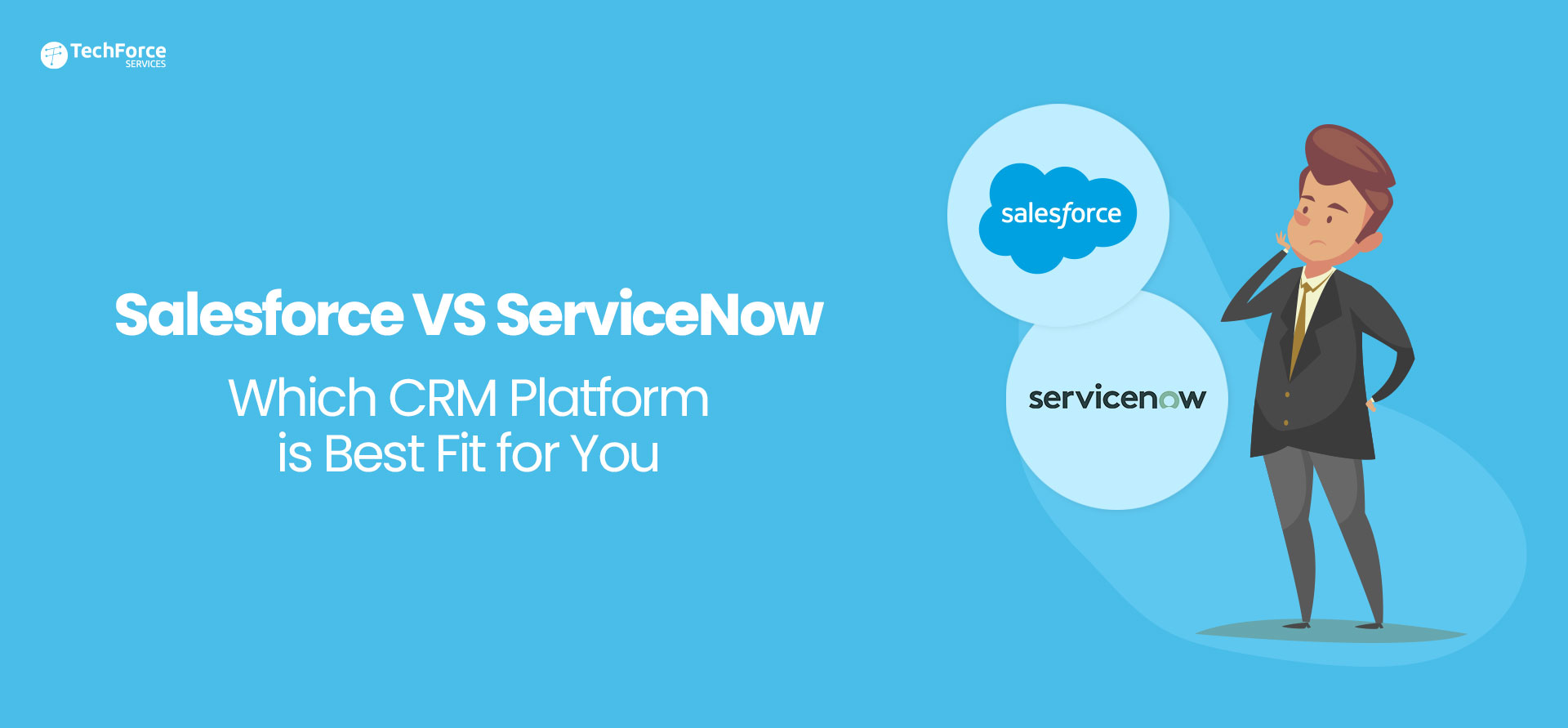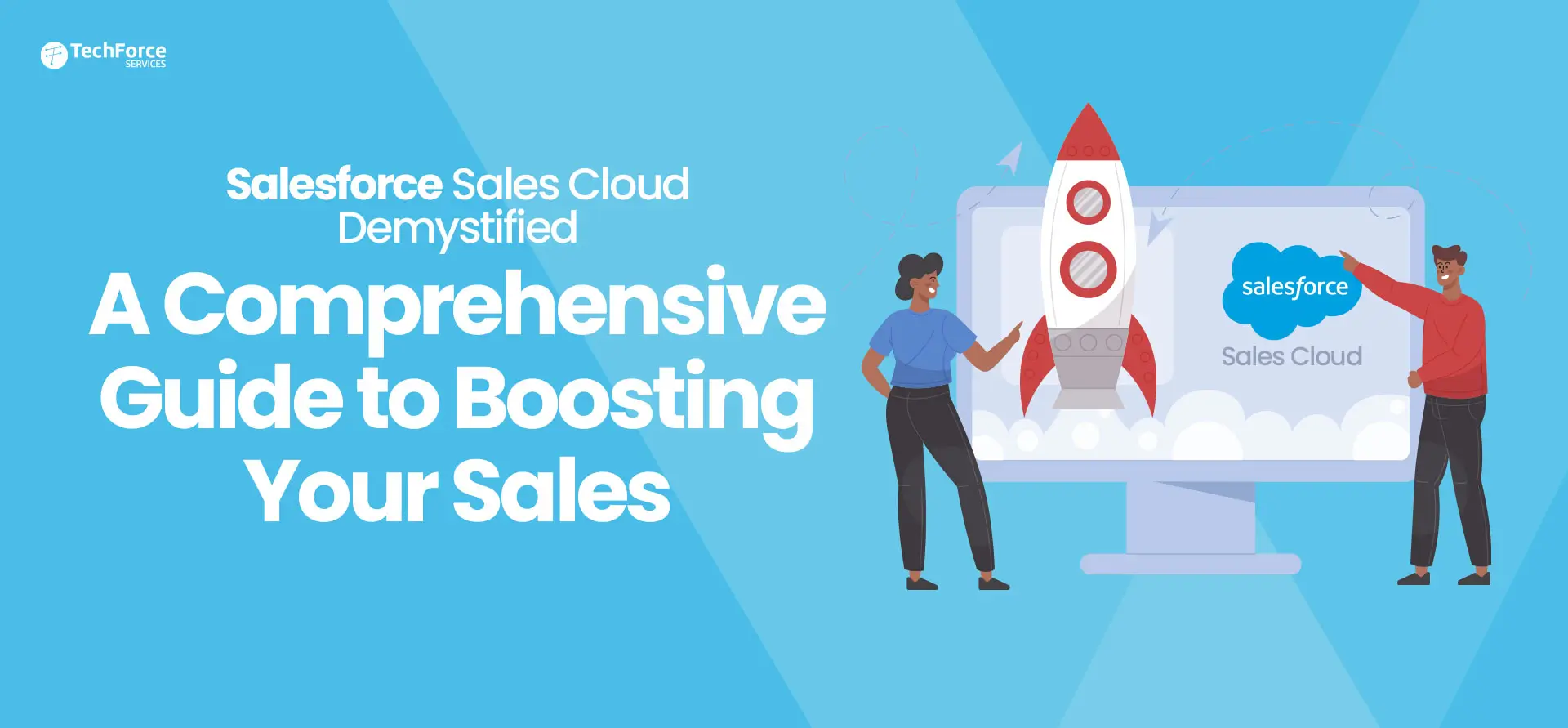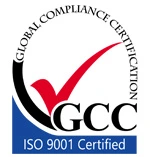In the world of business, achieving success for a renowned company hinges significantly on the customer experience. This concept of “experience” extends far beyond the mere incentives offered to customers. With the continuous evolution of technology, businesses have elevated their operational standards. They’ve transitioned from handling customer interactions primarily through phone calls to nurturing and supporting them throughout their journey with the help of modern cloud-based tools. This expansion of capabilities has led organizations to continually seek ways to enhance their customer interactions.
Customer Relationship Management (CRM) is not just a technology but an art that can be perfected using various CRM software solutions available in the market. Salesforce stands out prominently in any CRM conversation and is a name that cannot be overlooked.
In the realm of customer service, two names, ServiceNow and Salesforce, have emerged as top contenders, excelling in their ability to serve customers comprehensively. In this article, we will delve into both Salesforce and ServiceNow, two platforms dedicated to enhancing the customer experience. We will explore their features, similarities, and differences, with the ultimate goal of determining which one offers a superior solution.
What is Salesforce?
Salesforce is a cutting-edge cloud-based Customer Relationship Management (CRM) platform that plays a pivotal role in modern business operations. At its core, Salesforce aims to comprehensively manage and nurture the relationships between enterprises and their customers. This goes far beyond just transactional interactions and delves into the realm of creating remarkable customer experiences.
With technology continuously evolving, businesses have had to adapt their approaches to customer engagement. Salesforce has been at the forefront of this evolution, offering a suite of services that cater to various aspects of customer relationship management. Here’s a breakdown of what Salesforce brings to the table:
Sales Services:
Sales Cloud: Salesforce’s Sales Cloud facilitates the efficient management of customer data, contact information, and sales opportunities across different devices. It streamlines the sales process, making lead management and pipeline tracking a seamless experience.
Salesforce CPQ: The Configure, Price, and Quote (CPQ) functionality automates quoting, billing, contract management, and order processing. This empowers businesses to create precise business proposals and project quotes with ease.
Service Services:
Service Cloud: Salesforce’s Service Cloud empowers organizations to provide top-notch customer support and services. It enhances the customer experience by enabling faster and more customer-centric support, from self-service portals to help desk solutions.
Field Service Lightning: This service connects an entire workforce, ensuring swift delivery and intelligent onsite support.
Marketing Services:
Marketing Cloud: Salesforce Marketing Cloud optimizes customer engagement through cross-channel and personalized customer journeys. It enables businesses to deliver a consistent and outstanding customer experience across various platforms.
Salesforce DMP: The Data Management Platform (DMP) stores and activates customer data across all touchpoints, enhancing the overall customer experience and fostering strong customer relationships.
Pardot: Pardot is a robust marketing automation tool that facilitates activities like email marketing, lead scoring, and lead nurturing, allowing businesses to create targeted and effective marketing campaigns.
Salesforce’s extensive suite of services, accessible across multiple platforms, has solidified its reputation as an exceptional CRM software solution. It places a strong emphasis on personalization and automation, making it an ideal choice for businesses of all sizes. Salesforce integration of artificial intelligence (AI) further bolsters its capabilities in building robust customer relationships, delivering tailored experiences, and driving business growth.
Features of Salesforce
Salesforce, a leading Customer Relationship Management (CRM) platform, offers a robust set of features that cater to various aspects of customer management and business operations. Here’s an overview of its key features:
Customer Data Management: Salesforce provides a centralized repository for customer data, enabling a 360-degree view of customers. This empowers businesses to understand and engage with customers effectively.
Sales Automation: Salesforce streamlines sales processes, from lead generation to closing deals. Sales teams can manage leads, opportunities, and forecasts efficiently.
Marketing Automation: Businesses can automate marketing campaigns, email marketing, and lead nurturing. Marketing teams can create targeted and personalized campaigns.
Service and Support: Salesforce offers robust customer support with features like case management, self-service portals, and knowledge bases. It ensures exceptional customer service.
Analytics and Reporting: Salesforce provides powerful reporting and analytics tools. Users can create customizable reports and dashboards to gain insights into their data and track key performance metrics.
App Exchange: The Salesforce AppExchange is a marketplace of third-party apps and integrations. It allows businesses to extend the platform’s capabilities and integrate with other tools seamlessly.
Mobile Accessibility: Salesforce offers mobile apps for iOS and Android, enabling users to access the platform on the go. This ensures flexibility and productivity for remote teams.
AI Integration: Salesforce leverages artificial intelligence (AI) with Einstein Analytics for predictive analytics, personalization, and data-driven insights. AI enhances decision-making and customer engagement.
Customization: Businesses can customize Salesforce to meet their unique needs. This includes creating custom objects, fields, and workflows to adapt the platform to specific business processes.
Security: Salesforce prioritizes data privacy and security, offering robust security measures, including user authentication, data encryption, and compliance certifications.
These features make Salesforce a versatile and powerful platform for businesses looking to enhance customer relationships, streamline operations, and drive growth. It’s suitable for organizations of all sizes and industries, offering flexibility and scalability to meet diverse business needs.
What is ServiceNow?
ServiceNow is a leading cloud-based platform that specializes in providing a comprehensive range of services to streamline and enhance various aspects of modern business operations. As a multifaceted solution, ServiceNow is dedicated to revolutionizing the way businesses manage their operations, support their customers, and optimize their workflows.
Here’s an overview of what ServiceNow encompasses:
Service Management:
ServiceNow IT Service Management (ITSM): This component empowers businesses to manage their IT services effectively. It covers areas such as incident management, problem management, change management, and service request management, ensuring that IT operations run smoothly and efficiently.
Customer Service:
ServiceNow Customer Service Management (CSM): Customer-centric businesses can leverage CSM to provide top-tier customer support and service. It allows for the creation of self-service portals, ensuring customers can access information and assistance effortlessly.
HR Service Delivery:
ServiceNow HR Service Delivery: This facet simplifies human resources operations. It covers areas like employee onboarding, case management, and HR document management, making HR processes more efficient and employee-friendly.
Security Operations:
ServiceNow Security Operations: In a world with ever-increasing cybersecurity concerns, this solution enables businesses to respond to security incidents rapidly. It encompasses threat intelligence, incident response, and vulnerability response.
Business Process Automation:
ServiceNow’s Workflow Automation: This feature streamlines business processes and workflows, automating routine tasks and reducing operational inefficiencies.
Asset Management:
ServiceNow Asset Management: This tool helps organizations effectively manage their assets, from procurement and deployment to retirement.
Custom Applications:
ServiceNow’s App Engine: This feature allows businesses to create custom applications tailored to their unique needs. It’s a flexible solution for businesses that need more than out-of-the-box functionalities.
ServiceNow’s robust suite of services extends to multiple industries, making it an ideal choice for businesses looking to enhance their service management, customer support, and overall operational efficiency. The platform focuses on delivering a consistent and exceptional experience for both internal and external customers, ensuring streamlined operations, optimized workflows, and a competitive edge in today’s dynamic business landscape.
Features of ServiceNow
ServiceNow, a comprehensive cloud-based platform, offers a wide array of features aimed at optimizing business operations and improving service management. Here’s a breakdown of its key features:
Service Management: ServiceNow’s core functionality focuses on service management, including IT Service Management (ITSM) and IT Operations Management (ITOM). It streamlines and automates service processes, ensuring efficiency and accountability.
Customer Service Management (CSM): CSM enhances customer support and service through self-service portals, case management, and omnichannel support. It empowers businesses to provide exceptional customer experiences.
HR Service Delivery: ServiceNow simplifies HR operations, including onboarding, employee self-service, and case management, resulting in streamlined HR processes and improved employee satisfaction.
Security Operations: ServiceNow’s Security Operations features threat intelligence, incident response, and vulnerability response. It helps organizations identify and respond to security threats promptly.
Business Process Automation: Workflow Automation allows businesses to automate and optimize various processes, reducing manual work, and improving operational efficiency.
Asset Management: ServiceNow’s Asset Management tracks and manages assets throughout their lifecycle, improving asset utilization and cost control.
Custom Applications: The ServiceNow App Engine enables organizations to develop custom applications tailored to their unique requirements, extending the platform’s capabilities.
ServiceNow’s features cater to various industries, making it a versatile solution for businesses seeking to enhance service management, customer support, and overall operational efficiency. The platform emphasizes delivering consistent and exceptional experiences, both internally and externally, resulting in streamlined operations and a competitive edge in today’s dynamic business environment.
Salesforce Vs ServiceNow
Salesforce and ServiceNow are two popular cloud-based platforms, each with its unique strengths and purposes.
Similarities:
Cloud-Based: Both Salesforce and ServiceNow are cloud-based, offering the advantage of easy access from any location and scalability to meet your organization’s needs.
Customization: Both platforms allow for extensive customization. You can tailor them to suit your specific business processes, making them adaptable to different industries.
Differences:
Primary Purpose: Salesforce primarily focuses on customer relationship management (CRM). It’s designed to help businesses manage their interactions with customers, including sales, marketing, and customer support.
Features: Salesforce provides tools for managing leads, opportunities, pipelines, and customer service. It also offers the AppExchange, a marketplace for third-party apps, making it versatile for various business functions.
ServiceNow, on the other hand, specializes in IT service management (ITSM) and enterprise service management (ESM). It’s best suited for managing IT services, helpdesk operations, and broader business processes.
Features: ServiceNow includes features for incident management, problem management, change management, and other IT-related processes. It can also extend its capabilities to non-IT departments like HR and facilities management.
Choosing Between Salesforce and ServiceNow: Which One Is Right for You?
When deciding between Salesforce and ServiceNow, consider your needs. Salesforce excels in customer relationship management, helping businesses manage sales, marketing, and customer support. It’s versatile for various industries and customizable. ServiceNow, on the other hand, specializes in IT service management and enterprise service automation. It’s ideal for streamlining IT services and broader business processes. To make the right choice, identify your priorities. If you’re looking to enhance customer interactions and sales, Salesforce is a strong option. If you need robust IT service and enterprise management, ServiceNow might be the better fit. Assess your specific business requirements to determine the most suitable platform.
Conclusion
Customers seek a CRM platform that caters to their diverse needs. Salesforce and ServiceNow offer user-friendly options, but the key is choosing a platform that fulfills all your business demands to ensure a top-tier customer experience. In this regard, Salesforce stands out.
If you’re in search of a Salesforce consulting partner, your quest ends here. We boast a team of 100+ Salesforce experts ready to address your business challenges with optimal solutions.













